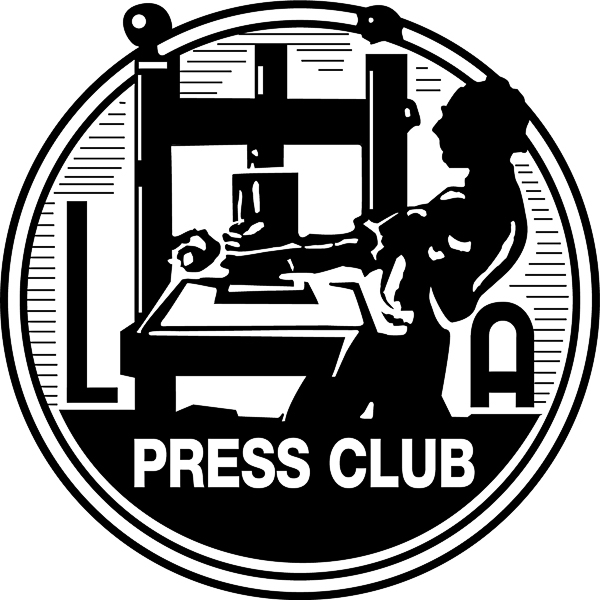Friday, November 30, 2001 10:55 PM
By: Karen Ocamb
In a straw poll at the L.A. Press Club’s well attended 2001 annual General Membership Meeting, a majority of members favored passage of the Tax-Exempt Initiative proposal, which is on the ballot sent this fall to Active LAPC members, along with six open board seats.
The initiative proposes the creation of a new entity which would become the primary outlet for the club’s activities. It includes adoption of seven objectives, which mandate support for journalists, fostering a greater sense of responsibility in the media, producing educational and informational events and publications, providing press conference facilities, reaching out to minority and other journalists, encouraging government to operate openly, and providing individual journalists with a voice that is a counter-balance to the increasing concentration of the media.
LAPC VP Jim Foy, who led the meeting, expressed his strong support, and called the proposal to pursue an IRS nonprofit status a “slam dunk.” He reported results of a survey of nearly two dozen other press clubs around the U.S. which shows most already operate with some form of non-profit status.
“I honestly don’t believe the Club has a great future unless it becomes a tax-exempt organization,” said Executive Director Alex Ben Block, whose extraordinary efforts on the Club’s behalf received high praise throughout the three hour meeting at LAPC headquarters in Hollywood, on Sept. 20. He explained the difficulties of maintaining the Club if it continues to rely on membership dues and occasional events, while pointing out that if the IRS does grant tax-exempt status, it would enable the Club to go after foundation and other grants for a variety of projects, and to create a secure economic basis for the future.
Attorney Jack Walker, of the prestigious Latham & Watkins law firm, who is working on the Tax-Exempt Initiative on a pro bono basis (at no cost to the club), told the group that there is “no downside” to switching from a for-profit corporation to nonprofit. “This is an organization that has a public purpose and you should really be housed in a nonprofit,” he said.
A handful of members disagreed. An opposition group on hand led by former President Mary Neisweinder, which also presented a slate of opposition candidates, asked why the Club had to create a “new charitable organization,” and have different objectives, instead of continuing to operate as in the past. Online journalist Joe Shea, who is on Neisweinder’s slate, expressed his strong opposition to the Tax-Exempt initiative, and questioned whether there would be any “strings attached” to grant money, adding, “We would be in competition with everyone else who has their hand out.”
While all six board nominated candidates were on hand to speak briefly, only two of the opposition candidates attended. Neisweinder spoke for the others, who she said were working. LAPC Secretary Chris Woodyard questioned how many worked a night shift, and said that if they were interested in being on the board, it would have been in their interest to attend personally. Block said as a non-profit, the club will continue to be completely independent, and that receiving grants from foundations and others for programs and projects, will only enhance and enlarge the club’s activities.
“If you think that was fun,” Foy said, closing the discussion, “wait until we talk about the by-laws.”
The evening, attended by about 60 members, also included a number of other discussions and committee reports, including the Sunshine laws, international outreach and the treasurers report (see separate article).
Foy also reported for the housing committee. The club’s landlord, the Producers Guild of America, is moving out by year‘s end, and the LAPC is working on either negotiating a new lease in the same building, or finding other offices. Block said that they prefer to share space with another organization, which would include access to additional facilities such as conference rooms for events and press conferences. One discussion is with the TV Academy, which has tentatively offered space on its North Hollywood campus.



